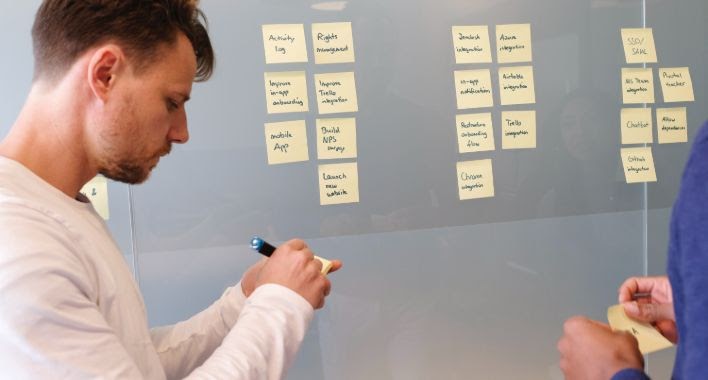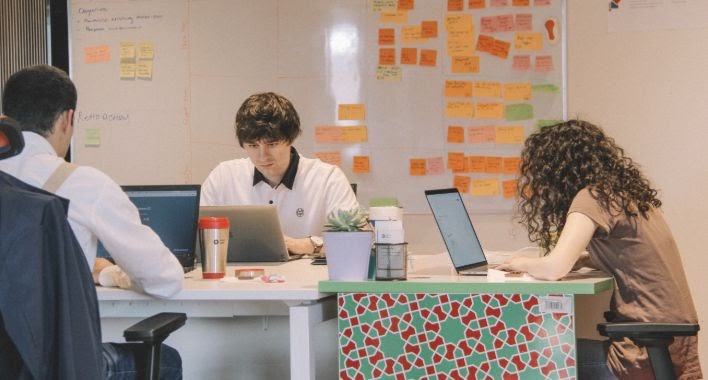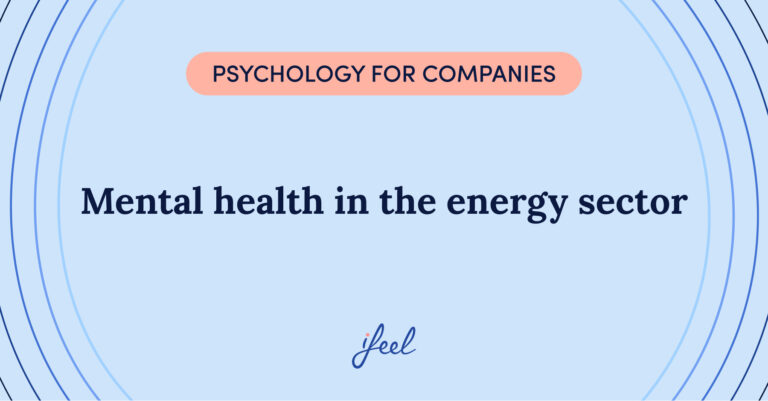Multitasking at work is given a lot of prestige, but is it being handled in the right way? Let’s talk about it in this post.
Living in the dictatorship of multitasking at work
For example, when we look at job offers and interviews it is common to find phrases such as “the ability to work under pressure, manage a variety of tasks that must be handled with agility and have a good ability to cope in fast-paced environments is valued”… at the end of an endless list of functions and tasks assigned to the position.
Moreover, we already knew it when we lived in the old normality, but the months of working from home left us many moments of simultaneous typing, telephone, telephone, watching the child, taking the opportunity to put the washing machine on while attending a videoconference before taking a look at the newspaper… And we seem to be producing and working well.
These are just two examples, applied to our work routines, of how multitasking can be a “good” way to adapt to today’s work ecosystem, but they also hint at the consequences of having – literally and metaphorically – many windows open on our computer desktop.
Stereotypes about the characteristics and advantages of multitasking (i.e. doing several or many things at the same time) are deeply embedded in popular belief. Let’s look at the two most prominent ones.

Myths about multitasking at work
1. Multitasking is good on its own
This belief, completely out of sync with reality, leads us to think that the more things we know how to do at the same time, the better. In other words, working or managing our daily lives in a multitasking mode is always a good thing.
2. Multitasking is “typical” for women
Sometimes it almost seems as if all women in the world always work efficiently when they have several fronts open at the same time, while men can only devote themselves to one task at a time because, as soon as things start to get complicated, the problems start for them.
The truth about multitasking
In reality, multitasking is not a good thing in itself, nor is it only for women. Unless we have some serious health problem that prevents us from doing so, all human beings are capable of “doing two things at once” (as they say colloquially), not just women. This is due to our ability to process information both serially (one item after another) and in parallel (several items at once).
Both types of processing are very useful and have to do with our ability to focus our attention on one task or distribute it over several items if necessary. Another great quality of our brain that influences our multitasking abilities is our working memory. Explained in a very rudimentary way, working memory allows us to keep activated in our consciousness, at a given moment, all the elements necessary to solve a given issue.
The point is that some people have a greater capacity for parallel distributed processing and a more powerful working memory than others. This may be due to their own innate abilities. Also (and this is even more interesting) because of how trained they are in one or the other.
The important thing to know is that, although this will allow them to perform (at work and in their life in general) very well in some ways… it may actually disadvantage them in others as well.
The flip side of multitasking at work
Serial and parallel distributed processing are not good in themselves, nor is one better than the other (this would be the third myth). Both are useful and necessary and will benefit us more or less depending on what each situation demands. Not all tasks require the same things to be tackled with maximum efficiency.
It is important to keep this in mind in life in general but in the workplace in particular. The ability to multitask at work enjoys enormous prestige in an environment oriented to produce the more the better, to compete for the more the better, to make decisions and solve problems the faster the better, always with many pending issues on the table.
However, this mentality neglects the benefits of a more serial way of working and the disadvantages that, at a certain point, an abuse (not use) of multitasking at work can present.
Some disadvantages of multitasking
1. Increases the likelihood of stress
Simultaneously handling several competing stimuli (because they belong to different tasks) can increase “system overload”, i.e. stress. If this is very intense, on a psychological level it can manifest itself in the form of anxiety, irritability, a feeling of too much external demand, guilt or “overwhelm” for not getting everything done in spite of being divided, or dissatisfaction with ourselves for not knowing how to organize ourselves in a more efficient way.
2. Increases the probability of error
The most treacherous disadvantage of multitasking at work is that taking care of several tasks at once instead of taking care of one task at a time increases the probability of error. Obviously, if our attention is not infinite and we divide it more than we can handle, we are more likely to say on WhatsApp to our friend the message that is meant for our boss and forget the coffee we put in the microwave while joining the meeting via videoconference.
3. More superficial processing
Sometimes the situation requires us to take care of several things at once and it is great to have the ability to do so. If they are not very brainy, deep, or elaborate tasks, taking care of them all at once is a good approach. However, if they are important and require thinking, going deeper, going further, etc., it may not be a good idea not to give each one our full attention. Multitasking at work implies less ability to go deeper into each task compared to the “one thing at a time” method.
4. We take longer to complete each task
The number one advantage of multitasking at work is very simple: we move forward with several things at the same time instead of having several of them paralyzed until we finish one. But that is not free: multitasking at work increases the slowness to finish each of the tasks we have started, while if we dedicate ourselves to only one thing, we will finish it sooner. Good or bad? It depends on the needs of the task.
5. More division, less attention
Does the feeling of saturation lead to a poor ability to concentrate, to remember, to keep your attention on a single stimulus for a while? Perhaps you need to examine your work (or daily dynamics, in general) and see if it is characterized by very intense multitasking. The distribution of attention is not conducive to concentration.
In short, multitasking at work is fine as long as the situation requires it, but we must know that it is not a perfect method and that it does not always mean that we produce more or better. This is especially relevant when evaluating the performance of a work team or a particular employee.
Alternatives to the disadvantages of multitasking:
1. Change your mind set
Having the ability to take care of several issues at once is great but don’t think it will always benefit your performance. Operating in a serial fashion is also appropriate in some situations.
2. Increase your commitment
Taking on several things at once without necessarily doing so indicates a certain lack of commitment to each of the tasks. Try to look at it from this point of view, especially with those issues that are more important, and dedicate yourself to them with real involvement: the secondary can wait.
3. Refresh your capacity for serial operation
The ability to multitask at work is more than trained and you probably have to enhance it by inertia. What if, both at work and in the other aspects of your life, you complement multitasking with a more mindful style (one thing at a time, putting your attention only on that)? Don’t complicate it: try it today when you work but also the rest of the time when you read, watch TV, cook, have a drink with a friend… Your whole life is full of situations in which you can train this skill to serve as a good complement to multitasking.
4. Remember that intelligence is a different matter
A high capacity for multitasking at work, that is, for processing information in parallel, is fantastic, but it does not in itself make you smarter, more professionally valid, more capable… These things are relative and it is important to have the flexibility to operate at different speeds and on different tracks.

Workplace mental health
At ifeel, we understand that it is not possible to take care of the company without taking care of the psychological well-being of its employees. To do so, we have an emotional well-being program for companies, designed by our team of occupational well-being psychologists with one main objective: to help companies place employee health at the center of their strategy to build their mission statement.
Thanks to this partnership, the people in charge of HR departments can receive personalized, data-driven advice on how to make good decisions in a company to get the most out of the teams they are in charge of and take better care of the psychological well-being of the people in them.
Moreover, this program offers employees a holistic mental health care service structured at different levels according to their needs. This service includes, if required, online psychological therapy with a psychologist specialized in cases like theirs. Try our program today so you can see how it could help you.
We hope you have found this post about multitasking at work interesting. If you want more information about our emotional well-being program for companies, simply request it and we will contact your team as soon as possible. You may also be interested in this post about mental health at work.











